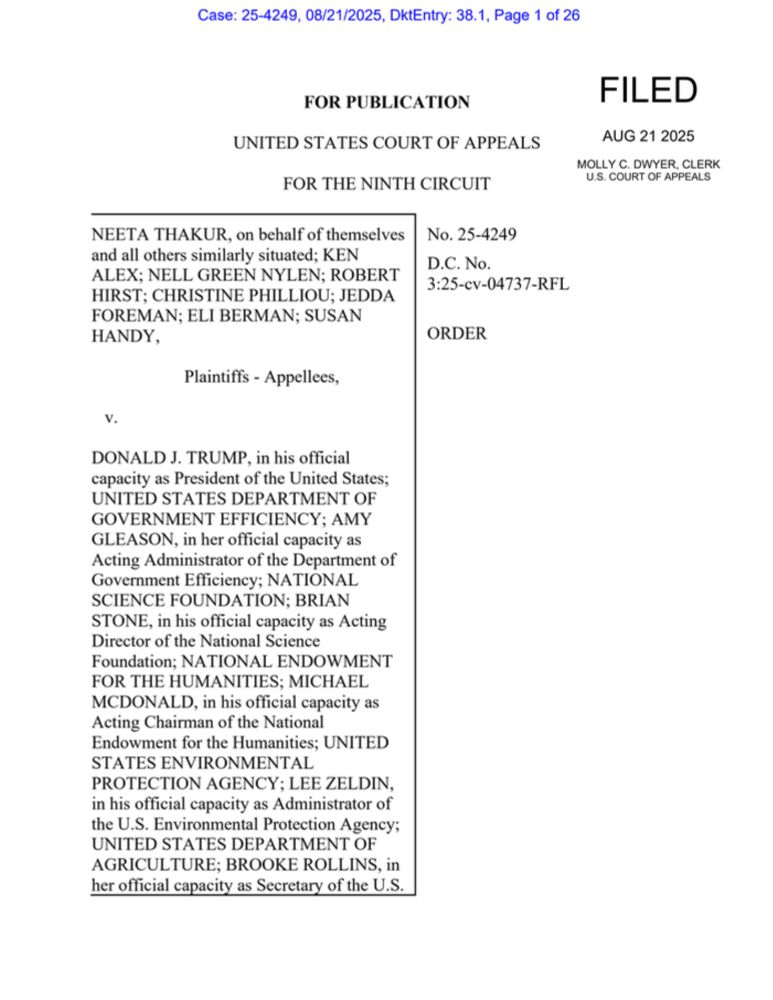
Prof at @StanfordLaw.bsky.social, Senior Fellow at @SIEPR.bsky.social, physics PhD. Researching IP & innovation. Coauthor of free patent casebook: patentcasebook.org
Reposted by Lisa Larrimore Ouellette


It is available on SSRN here: lnkd.in/gHbPQVBP.
Reposted by Lisa Larrimore Ouellette
It is available on SSRN here: lnkd.in/gHbPQVBP.
Reposted by Julian Webb, Lisa Larrimore Ouellette

Reposted by Lisa Larrimore Ouellette



Reposted by Lisa Larrimore Ouellette

Reposted by Lisa Larrimore Ouellette
lawreview.uchicago.edu/online-archi...
Reposted by Lisa Larrimore Ouellette

Reposted by Brendan Nyhan, Lisa Larrimore Ouellette

www.statnews.com/2025/10/14/f...
Reposted by Lisa Larrimore Ouellette
It's much less user-friendly than Patent Center was and the UI is *terrible*, so it's not a great replacement.


Reposted by Lisa Larrimore Ouellette
drive.google.com/file/d/1SlL9...

Earlier this year, the President’s budget proposed a 40% cut to the budget of the NIH. This motivated us to ask: what if the NIH had been 40% smaller?

www.statnews.com/2025/09/22/f...

Reposted by Lisa Larrimore Ouellette

Reposted by Marc Lynch, Kim L. Scheppele, Lisa W. Fazio , and 12 more Marc Lynch, Kim L. Scheppele, Lisa W. Fazio, Brendan Nyhan, Joshua S. Weitz, Scott L. Greer, Steve Peers, Rosemary A. Joyce, Trade, Michael D. Green, Lisa Larrimore Ouellette, Scott A. Imberman, Brian Keegan, Greg Linden, Daxton R. Stewart
That sends a fairly strong (if mixed) message that Trump will lose these cases *eventually,* but only once they're brought in the Court of Federal Claims.
Reposted by Pamela Samuelson, Lisa Larrimore Ouellette

Reposted by Mark A. Lemley


